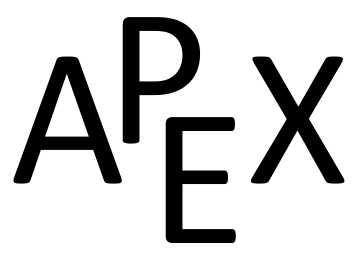Skip to main content
Contents Index Calc Dark Mode Prev Up Next \(\require{cancel}\newcommand\blank[2]{\,\colorbox{gray}{$\phantom{\rule{#1pt}{#2pt}}$}\,}
\newcommand{\highlight}[1]{{\color{blue}{#1}}}
\newcommand{\ds}{\displaystyle}
\newcommand{\fp}{f\hskip.75pt '}
\newcommand{\fpp}{f\hskip.75pt ''}
\newcommand{\lz}[2]{\frac{d#1}{d#2}}
\newcommand{\lzn}[3]{\frac{d^{#1}#2}{d#3^{#1}}}
\newcommand{\lzo}[1]{\frac{d}{d#1}}
\newcommand{\lzoo}[2]{{\frac{d}{d#1}}{\left(#2\right)}}
\newcommand{\lzon}[2]{\frac{d^{#1}}{d#2^{#1}}}
\newcommand{\lzoa}[3]{\left.{\frac{d#1}{d#2}}\right|_{#3}}
\newcommand{\plz}[2]{\frac{\partial#1}{\partial#2}}
\newcommand{\plzoa}[3]{\left.{\frac{\partial#1}{\partial#2}}\right|_{#3}}
\newcommand{\inflim}[1][n]{\lim\limits_{#1 \to \infty}}
\newcommand{\primeskip}{\hskip.75pt }
\newcommand{\infser}[1][1]{\sum_{n=#1}^\infty}
\newcommand{\Fp}{F\hskip.75pt '}
\newcommand{\Fpp}{F\hskip.75pt ''}
\newcommand{\yp}{y\hskip.75pt '}
\newcommand{\gp}{g\hskip.75pt '}
\newcommand{\dx}{\Delta x}
\newcommand{\dy}{\Delta y}
\newcommand{\ddz}{\Delta z}
\newcommand{\thet}{\theta}
\newcommand{\norm}[1]{\left\lVert#1\right\rVert}
\newcommand{\vnorm}[1]{\left\lVert\vec #1\right\rVert}
\newcommand{\snorm}[1]{\left|\left|\,#1\,\right|\right|}
\newcommand{\la}{\left\langle}
\newcommand{\ra}{\right\rangle}
\newcommand{\dotp}[2]{\vec #1 \cdot \vec #2}
\newcommand{\proj}[2]{\text{proj}_{\,\vec #2}{\,\vec #1}}
\newcommand{\crossp}[2]{\vec #1 \times \vec #2}
\newcommand{\veci}{\vec i}
\newcommand{\vecj}{\vec j}
\newcommand{\veck}{\vec k}
\newcommand{\vecu}{\vec u}
\newcommand{\vecv}{\vec v}
\newcommand{\vecw}{\vec w}
\newcommand{\vecx}{\vec x}
\newcommand{\vecy}{\vec y}
\newcommand{\vrp}{\vec r\hskip0.75pt '}
\newcommand{\vrpp}{\vec r\hskip0.75pt ''}
\newcommand{\vsp}{\vec s\hskip0.75pt '}
\newcommand{\vrt}{\vec r(t)}
\newcommand{\vst}{\vec s(t)}
\newcommand{\vvt}{\vec v(t)}
\newcommand{\vat}{\vec a(t)}
\newcommand{\px}{\partial x}
\newcommand{\py}{\partial y}
\newcommand{\pz}{\partial z}
\newcommand{\pf}{\partial f}
\newcommand{\unittangent}{\vec{{}T}}
\newcommand{\unitnormal}{\vec{N}}
\newcommand{\unittangentprime}{\vec{{}T}\hskip0.75pt '}
\newcommand{\R}{mathbb{R}}
\newcommand{\mathN}{\mathbb{N}}
\newcommand{\surfaceS}{\mathcal{S}}
\newcommand{\zerooverzero}{\displaystyle \raisebox{8pt}{\text{``\ }}\frac{0}{0}\raisebox{8pt}{\textit{ ''}}}
\newcommand{\abs}[1]{\left\lvert #1\right\rvert}
\newcommand{\sech}{\operatorname{sech}}
\newcommand{\csch}{\operatorname{csch}}
\newcommand{\curl}{\operatorname{curl}}
\newcommand{\divv}{\operatorname{div}}
\newcommand{\Hess}{\operatorname{Hess}}
\newcommand{\lt}{<}
\newcommand{\gt}{>}
\newcommand{\amp}{&}
\definecolor{fillinmathshade}{gray}{0.9}
\newcommand{\fillinmath}[1]{\mathchoice{\colorbox{fillinmathshade}{$\displaystyle \phantom{\,#1\,}$}}{\colorbox{fillinmathshade}{$\textstyle \phantom{\,#1\,}$}}{\colorbox{fillinmathshade}{$\scriptstyle \phantom{\,#1\,}$}}{\colorbox{fillinmathshade}{$\scriptscriptstyle\phantom{\,#1\,}$}}}
\)
Chapter 2 Derivatives
Chapter 1 introduced the most fundamental of calculus topics: the limit. This chapter introduces the second most fundamental of calculus topics: the derivative. Limits describe
where a function is going; derivatives describe
how fast the function is going.

